5. The Good German (2006)
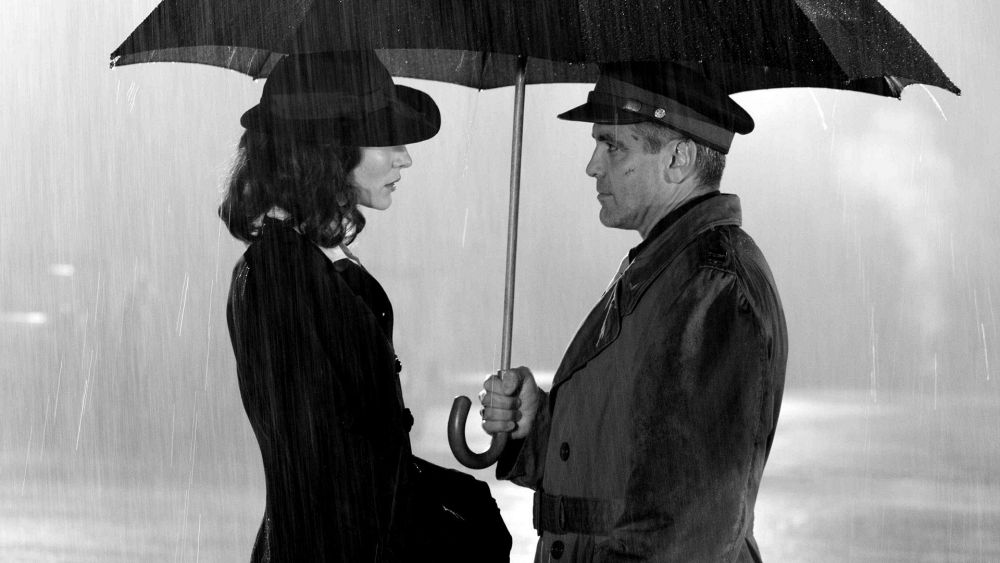
Steven Soderbergh is a filmmaker who is renowned for his innovation and experimentation, but he’s also someone who is quite aware of his influences. The Good German is Soderbergh’s tribute to post-World War II espionage and romance films, and the marketing campaign was clear in its intention to reference Casablanca. Still, Soderbergh manages to craft the genre in his own image, featuring shocking violence and sexuality that feels at odds with the more classical filmmaking he is honing.
In 1945, New Republic journalist Jake Geismer (George Clooney) travels to Berlin to cover the Potsdam Conference, but his trip takes a sideways turn when he witnesses a murder and is reunited with his former flame Lena Brandt (Cate Blanchette). The strained romance comes under fire when Jake begins investigating a Nazi conspiracy, forcing Jake to keep Lena safe while informing the authorities. Clooney and Blanchette are obviously homaging Humphrey Bogart and Ingrid Bergman with their performances, but they do more than just imitations, and bring this modern take on a classic noir to life.
4. Papillon (2017)
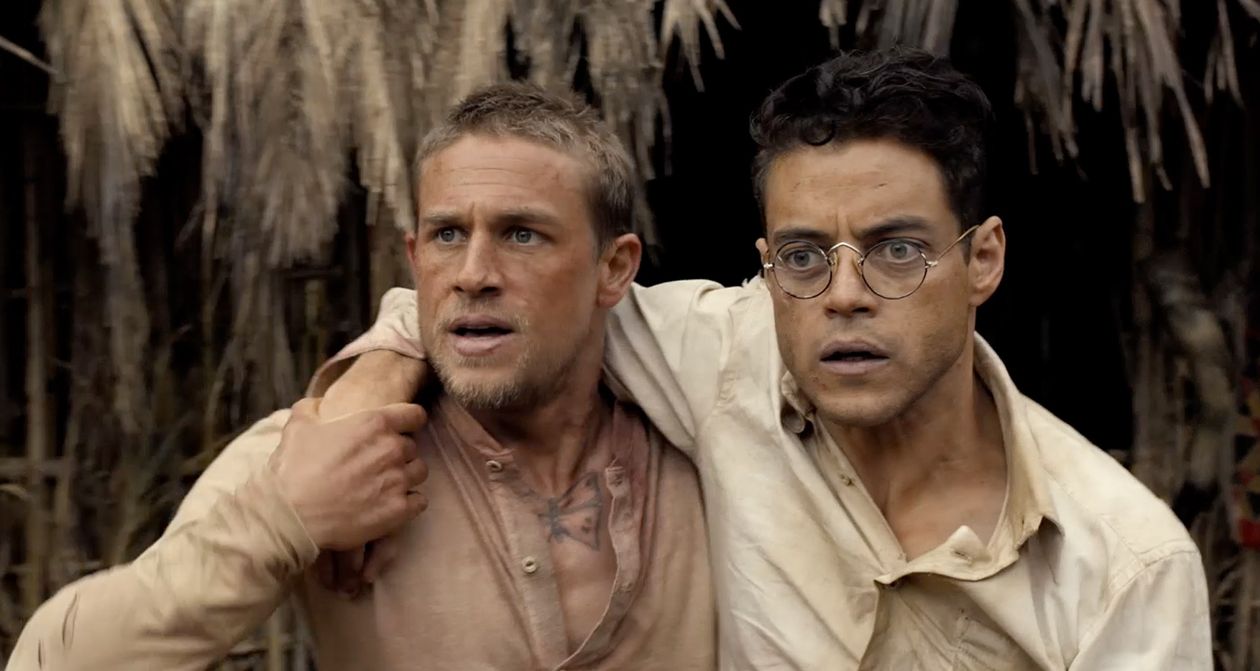
1973’s Papillon is one of the quintessential prison movies of all-time, and thankfully the recent remake keeps the integrity of the story and fleshes out the characters even further. Henri “Papillon” Charrière (Charlie Hunnam) is a safecracker with dubious morality, but he’s no killer. After being framed for murder, Papillon is transported to the mythic Devil’s Island, a penal colony renowned for its brutality and impenetrable structure. Papillon searches for a means of escape, and befriends Louis Dega (Rami Malek), a clever forger who is targeted by other prisoners for his wealth.
Hunnam is a very underrated actor, and he does an excellent job at showing the physical changes that Papillon goes through as he is abused and contorted by the prison lifestyle. The shaky friendship that grows between Papillon and Dega is very interesting, as the two men initially bond because out of necessity, but eventually develop genuine compassion for each other. This is a prison film that doesn’t hold back; it shows the crushing defeat of failed attempts and the madness that results from isolation, which makes the story’s conclusion even more effective.
3. Sweet Virginia (2017)
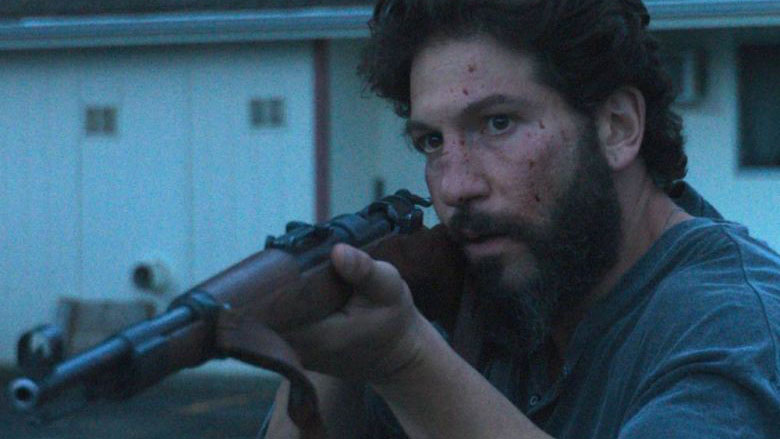
While westerns are often thought of as solely as period pieces, this decade has seen the emergence of many great modern neo-noir crime dramas that draw from western iconography, such as Hell or High Water, Sicario, Logan, and El Camino: A Breaking Bad Movie. Sweet Virginia isn’t quite as well-known as those films, but it deserves to be in the conversation, as it is a suspenseful slow burn thriller that makes the most of its low budget and limited environments. There’s little violence on screen, but each scene feels like it could escalate into a showdown.
Following a brutal slaying at a poker game, a small town is transformed by grief. The massacre’s perpetrator is Elwood (Christopher Abbot), a psychotic young man who has managed to go undetected as he poses as a traveler. Elwood encounters Sam (Jon Bernthal), a hotel manager and former bull rider who uses his limited authority to maintain the peace among his tenants. As Elwood’s behavior grows more apparent, Sam edges towards the truth, and the film plays out like a cat and mouse game as the two men prepare for a gripping showdown.
2. Starred Up (2013)
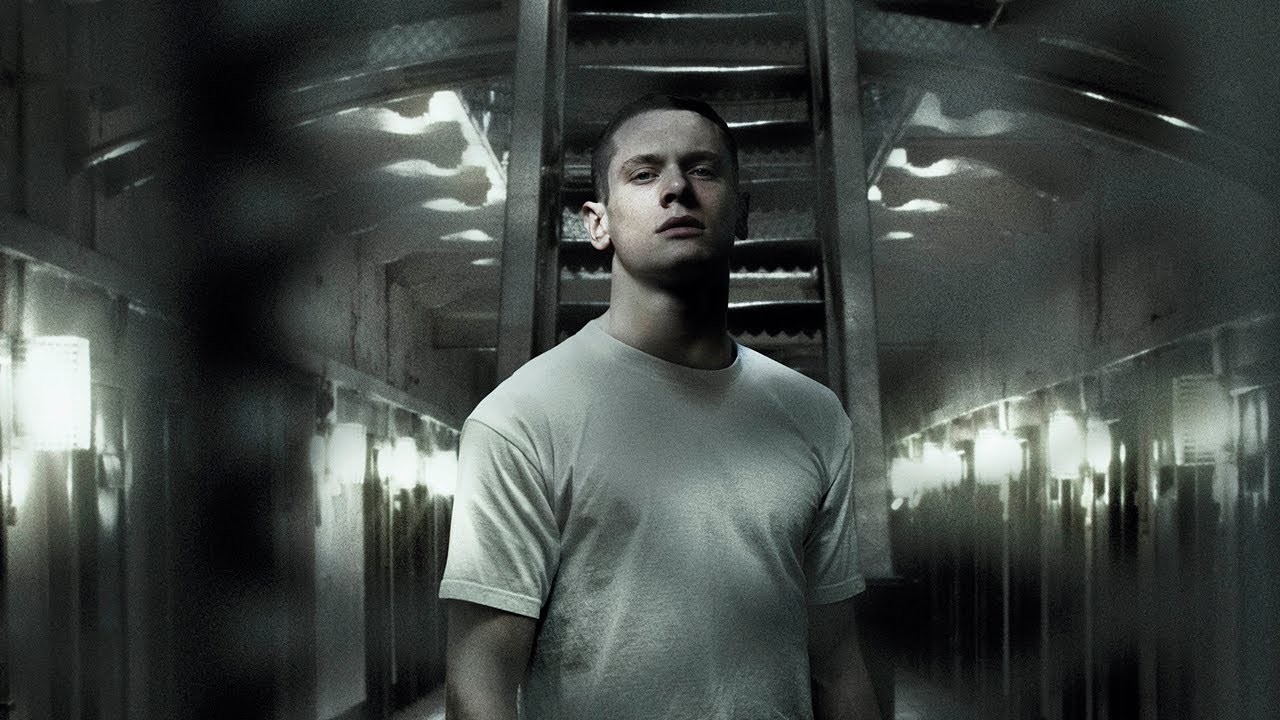
An instant classic within the prison movie genre, Starred Up is among the grimmest depictions of prison culture and reform ever depicted on screen. The title refers to the lead character Eric Love (Jack O’Connell), who has been “starred up,” or transferred from a juvenile detention center to a higher security penitentiary. Eric is keen to show his dominance to other prisoners through ruthless acts of violence, and he’s caught between two very different role models- his mentor Oliver (Rupert Friend), a volunteer prison therapist, and his father Neville (Ben Mendelsohn), a lifelong prisoner who has allied himself with the prison crime boss.
O’Connell is astounding as a young man trying to make a name for himself; while Eric behaves aggressively in order to protect himself, the film questions whether his behavior is learned or inherent. Friend does a great job at showing the difficulty of getting these men to reform, as he struggles to get the men in his therapy group to imagine a better life for themselves. The film really excels when it shows the strained father-son relationship, as Eric resents his father, but ultimately learns that his mistakes may be ones he could avoid.
1. Killer Joe (2011)
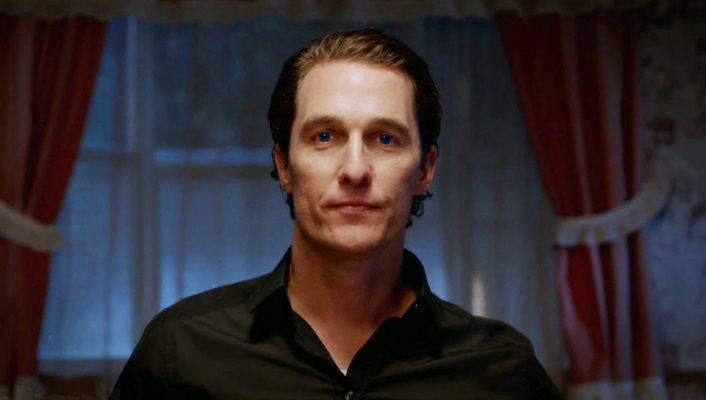
William Friedkin is unquestionably one of the greatest filmmakers of all-time; The Exorcist is a film that gave the horror genre newfound respect among its critics, and The French Connection was a breakthrough in realistic crime thrillers. Anyone doubting Friedkin’s influence within the medium should look no further than his recent film Killer Joe, a richly black comedy that lifts the words from Tracy Letts’s play and transforms them into a film that is equally disturbing and uproarious. Not only is it one of the best Texas movies ever made, but it is an example of Friedkin’s cinematic fearlessness, as the film landed a mainstream release despite its rare NC-17 rating.
The story follows Chris Smith (Emile Hirsch), a low life drug dealer who convinces his father Ansel (Thomas Hayden Church) to help him pay the corrupt lawman Joe Cooper (Matthew McConaughey) to kill Chris’s mother so he can collect her life insurance. Cooper isn’t without his demands, as he lusts for Chris’s sister Dottie (Juno Temple), thrusting the family dynamic into chaos. Friedkin enjoys exposing these characters for their cruel and shallow desires, and rips apart the fabric of normalcy as the story transcends into ultra-violent, depraved territory. It is not for the faint of heart, but Killer Joe should be remembered as a cornerstone of Friedkin’s legacy.